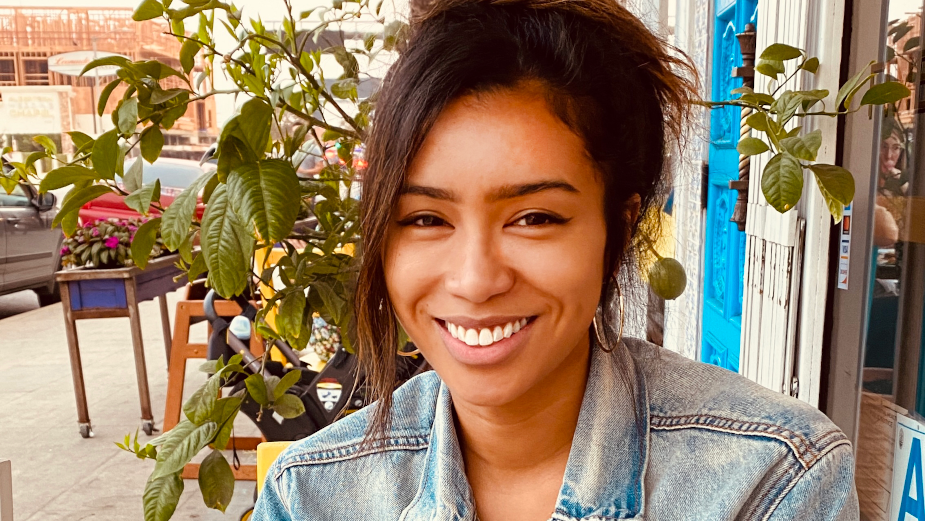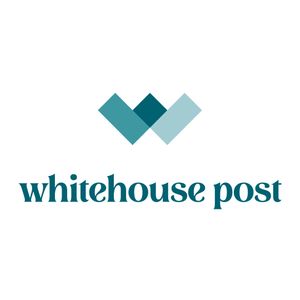
Finely Sliced: Autumn Dea on the Concept of an Editor as "the Last Writer”

A rising star with a multitude of experience, Autumn Dea joined Whitehouse in 2021 after establishing herself as a successful long form editor. In 2019, Dea was an assistant editor on Black Is King, Beyonce’s 85-minute elaborate visual album nominated for Best Music Film at the 2021 GRAMMY Awards. Following that, she edited the feature film Shithouse directed by Cooper Raiff, which won the Grand Jury Award for Best Narrative Feature at SXSW 2020 and was chosen as one of the top 10 films of the year by Vanity Fair Magazine. Her work in television has also received accolades including an Emmy for The Future of America’s Past for PBS, and inclusion in the Tribeca Film Festival for the documentary feature The Death of My Two Fathers (which recently premiered at the festival as part of their Juneteenth programming).
Autumn began her editorial career at commercial post house Madbox Made in Richmond. Well-versed in the advertising world, Dea has cut work for clients including Virginia Lottery, Lexus, Lumber Liquidators, Sabra Hummus, and Walmart, and collaborated with agencies including Team One and The Martin Agency.
Autumn tackles our Finely Sliced feature below.
LBB> The first cut is the deepest: how do you like to start an editing project?
Autumn> For me, it’s really important to screen all of the footage and pull my own selects before looking at any script notes. Doing this allows me to watch the performances in an unbiased way. As an editor, I believe you’re the last writer, so it’s beneficial to have that unbiased opinion. Once I’ve screened all the dailies, I’ll look at the director’s notes and compare. From there, I’ll begin building an assembly edit based on what I feel best serves the story. In most cases the director and I will have overlapping selects, but it’s important for me to also incorporate takes that I feel strongly about, even if they weren’t in the director’s notes.
LBB> Non-editors often think of editing just in technical terms but it’s integral to the emotion and mood of a film. How did you develop that side of your craft?
Autumn> I think I really had to open up and let myself be vulnerable and empathetic. Once I allowed myself to feel the performances I started to release the need for technical ‘textbook’ editing. I’ve learned that it’s more important to make sure the characters and story are emotionally honest, rather than using all the coolest pieces of coverage. If I can get to the core of what the story is trying to say, it’s easier to emotionally map where we need the audience to be.
LBB> How important is an understanding of story and the mechanics of story?
Autumn> I think that understanding story is crucial. As an editor you’re the last writer, so understanding character arc, inciting incidents, conflict, structure and having an overall understanding of what the audience needs is really important. In my opinion, the story is the most important element of the film, so there should be a huge emphasis on understanding story and the mechanics of story.
LBB> Rhythm and a sense of musicality seem to be intrinsic to good editing (even when it’s a film without actual music) – how do you think about the rhythm side of editing, how do you feel out the beats of a scene or a spot? And do you like to cut to music?
Autumn> I agree that good editing has a really natural pace to it. You can’t necessarily put your finger on it, but it just feels right. Usually scenes have a rise and fall - some sort of tension or element that drives the story forward. I think that understanding what the rise and fall are helps you pace out a scene.
When I’m editing a long form piece, I like to cut to music more for tone rather than pace or rhythm (unless it’s a specific stylised scene). Music can really help elevate a scene, but I don’t think it should be reliant on music. Again, I use music more for tone.
LBB> Tell us about a recent editing project that involved some interesting creative challenges.
Autumn> I’m currently editing a feature length documentary with a subject that’s still alive. It sounds weird to say, but it actually causes creative challenges as their story is always changing. If there was a definitive ending it’d be easier to shape the story around that. In this case it’s forced me to be flexible, while also keeping a clear understanding of the film’s themes. Without an understanding of the themes, there would be a million ways to tell the story.
LBB> How important is your relationship with the director and how do you approach difficult conversations when there is a creative difference of opinion?
Autumn> I love having a good director/editor relationship. I feel like the strongest director/editor relationships are built on trust. Knowing that you ultimately want the same thing helps facilitate that trust. If a director and I aren’t seeing eye to eye, I remind myself that we’re both trying to make the strongest story possible. I also try to come in with solutions rather than just problems. If I don’t like the way something is playing, I’ll figure out what I think will work better before I bring it up to the director. It’s important to remember that you’re executing the director’s vision though, so being open minded and flexible is a part of the job.
LBB> In the US we know that editors are much more heavily involved across the post production process than in Europe - what’s your favourite part of that side of the job?
Autumn> I love being involved creatively. My favourite aspect is having the ability to think about the film as an audience member would. When I look at it through that lens, it informs so many of my decisions. Performance, tone, music, and structure all stem from that perspective and I love being able to have that type of creative input.
LBB> What’s harder to cut around – too much material or not enough?
Autumn> In my experience, it’s much harder to cut around too little material. It just creates a lot of limitations that stifle your creativity. It becomes more about problem solving rather than making the best story possible.
LBB> Which commercial projects are you proudest of and why?
Autumn> I’m really proud of my work on the Virginia Lottery campaigns. I was very young and emerging in my career when I cut those spots, so it gave me the opportunity to rise to the occasion. It was also satisfying to work on a campaign rather than an isolated spot, because it allowed me to think about the characters in a big picture way.
LBB> There are so many different platforms for film content now, and even in advertising something can last anything from a few seconds to a couple of hours. As an editor, are you seeing a change in the kind of projects you’re getting from brands and agencies?
Autumn> Yes! I’ve noticed there’s a lot more opportunity to cut branded content. I’ll get requests for short films or even web series that are all technically branded content. It’s exciting to see advertising branch into the cinema space.
LBB> Who are your editing heroes and why? What films or spots epitomise good editing for you?
Autumn> Joi McMillon and Margaret Sixel are two of the editing GOATs for me. They show so much versatility in the types of films that they edit and I really admire that. Joi was one of the editors of Moonlight, while Margaret was the editor of Mad Max Fury Road. As far as editing goes, I consider both of these films to be iconic. Their editing feels very intentional and it plays a big role in how the story unfolds. It directly impacts our emotions as an audience member and I’d even argue that they changed the editing game. Since their release, I’ve seen similar styles becoming more popular.
LBB> How does editing in the commercial world differ from the film world and TV world?
Autumn> Editing in the commercial world is very fast paced and tends to be more about problem solving because of the time limitation. Trying to tell a story in :60 seconds involves a lot of creative solutions and sometimes stylized editing. You’re also primarily working with the agency rather than the director, so the dynamic in the editing bay is different. Editing in the film world is definitely more of a marathon than a sprint. You’re working closely with the director and more ‘story’ focused. You have to be able to be in the weeds of a scene, while also keeping the larger story in mind.
LBB> Have you noticed any trends or changes in commercial editing over recent years
Autumn> I’ve noticed that commercial editing has become faster paced and more stylised. In part, I think it’s because of the advancement in cameras, tech, equipment, and visual effects. As a society I think we also like to watch flashy, fast paced videos because of the way our media and attention spans have shifted. Now that commercials are happening while we scroll our phone, we need something to catch our eye.













